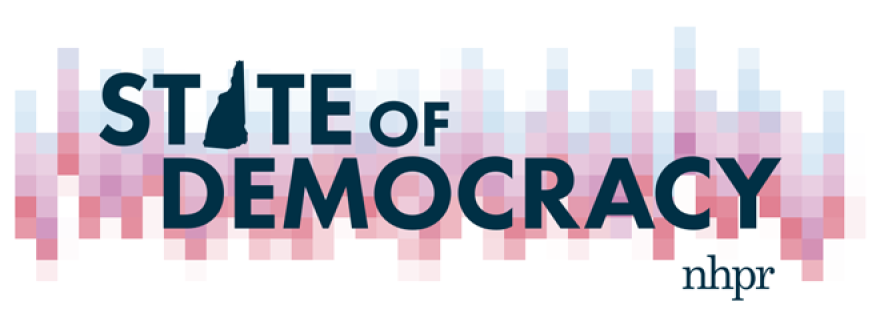The question of whether to continue New Hampshire's expanded Medicaid program has been one of the top State House policy debates this year.
But it's something local governments are mulling over as well. In City Halls across the state, officials say the program has led to some significant savings: in the slice of taxpayers’ money set aside for medical and prescription aid, and indirect savings in other areas.
It might be hard to draw a straight line between Medicaid expansion and any major shifts in municipal budgets across New Hampshire. But there are some tangible impacts, local welfare officials say.

“We’ve seen a direct connection in our reduction in local general assistance expenditures related to prescription assistance,” said Elizabeth Fox, Keene’s assistant city manager and human resources director.
While the state's expanded Medicaid program is still relatively new, initial data from cities and some towns across New Hampshire shows sharp reductions in the first year after the program started.
The New Hampshire Municipal Association, the New Hampshire Local Welfare Administrators Association and individual officials have all spoken in favor of extending the program, pointing to these figures as an initial indication of one way it’s helping local communities.
By law, New Hampshire cities and towns must provide “general assistance” to any person in their community who is “poor and unable to support” him or herself. That assistance is paid for through the local budget and funded by property taxes.
New Hampshire communities calculate their welfare budgets in different ways, so comparing one city to another can be misleading. But the prescription assistance program is one area where there is some consistency across municipalities. This program provides help with prescription drug costs for uninsured residents.
As a portion of a city or town’s welfare budget, the prescription assistance program can be relatively small. In Concord, for example, officials initially set aside $9,000 for prescription assistance in their 2015 budget but $379,450 for welfare aid overall. That larger category includes things like utilities or rental assistance, the latter of which accounts for the largest share of the welfare budget.
Even so, Pat Murphy, president of the state welfare association and welfare administrator for the town of Merrimack, says those small savings make a difference.
“A lot of times we will have people who are working, maybe not getting healthcare through their jobs, they have a lot of prescriptions in their expenses,” Murphy explained. “So they’ll come to us to get the prescription because they couldn’t afford that with paying their rent, their food and utilities plus their expenses.”
Merrimack's prescription assistance expenses decreased from $1,119 the year before Medicaid expansion to $386 the year after, according to data from the welfare administrators' association.
And, beyond alleviating that individual line item, Murphy said connecting people with health care can spur other (albeit harder to quantify) savings at the local level.
One woman, Murphy recalled, reached out to the Merrimack welfare office last year because she had a medical condition that required surgery and prevented her from working.
Before the expansion, Murphy said she would’ve been left to refer the woman to disability assistance but wouldn’t have been able to do much to get her medical care.
But with the Medicaid expansion in effect, Murphy was able to refer the resident — who had no children and otherwise wouldn’t have qualified for coverage without the expansion — to the newly available insurance coverage. That, in turn, allowed her to connect with a doctor and get the surgery she needed, and then to eventually get back to work.
Murphy said the office still offered the woman temporary assistance on housing and utilities, but they would’ve likely had to do so longer if the woman were left to wait for disability assistance without having her underlying medical problem addressed.
“Did I save a lot of money in our local welfare budget? I think we did,” Murphy said. “Because her ability to go back and be self-sufficient, back into the employment world, saved us that amount of money that we would’ve [spent] if she had been disabled.”
Merrimack’s overall welfare budget, Murphy said, has not necessarily declined since Medicaid expansion — but she said that’s largely because of rising need for housing assistance.
“Quantitatively, [the savings are] probably not huge, but to me the biggest thing we’re seeing in our general society is that I feel this has allowed people to go back to work,” Murphy said of the program’s impact on a local level.
New Hampshire's Medicaid expansion went into effect in 2014 — but only on a temporary basis.
Right now, the federal government picks up the tab for coverage provided through the program. Lawmakers are now deciding whether to extend the program beyond the end of 2016, at which point the federal government will start paying a smaller share of the costs.
The proposal on the table now would extend the program for another two years while asking New Hampshire hospitals and insurers to pick up the state's share of the funding.
As of January, nearly 48,000 residents were receiving coverage through the Medicaid expansion program.








